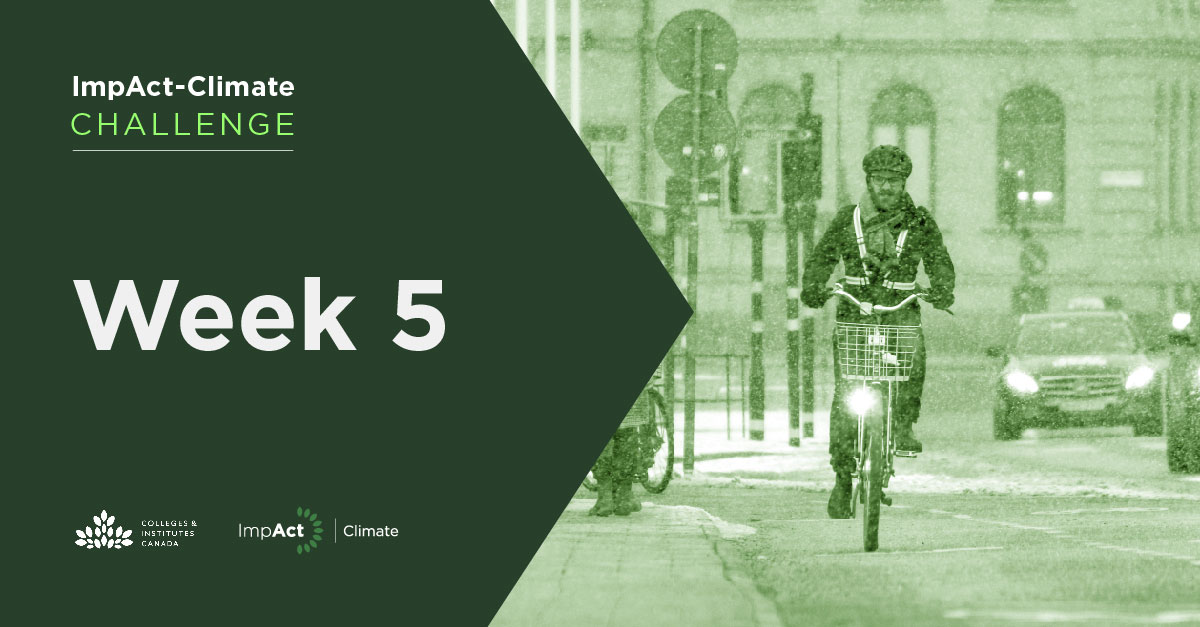Thank you for committing to the Eco-Transportation Challenge. You’ve entered the weekly draw for $350.
The correct answers to the quiz are below:
True or False? Cycling to campus produces no greenhouse gas emissions, making it one of the most environmentally friendly commuting options available.
Correct answer: True
Bicycles operate without burning fossil fuels, so they don’t produce direct emissions. Plus, manufacturing and maintaining a bicycle requires much less energy than a car, further reducing its carbon footprint.
True or False? Building more roads and highways solves traffic congestion and reduces greenhouse gas emissions.
Correct answer: False
When new roads or highways are constructed or expanded, they often attract more drivers, as people who may have previously avoided certain routes due to congestion now find them more appealing. It’s a concept known as “induced demand”. Also, building new roads contributes to GHGs both from the construction process and the embodied carbon in paving materials like cement.
True or False? For short trips, flying is still better than driving because there are lots of people in the airplane?
Correct answer: False
For short trips, flying is not better than driving, even with many people on the airplane. This is because airplanes use a lot of fuel during takeoff and landing, which makes them less efficient for short distances compared to cars.
A step towards the United Nations’ Sustainable Development Goals, the Impact-Climate Challenge calls on our college and institute community: students, staff, and faculty, to deepen their understanding of greenhouse gases and take definitive steps towards reducing emissions.
Next week’s theme on waste mitigation marks the final week of the challenge. But it’s not too late to rally your friends and colleagues. Share the challenge; remember, every engagement boosts your college or institute’s chances of securing a $3,000 bursary for a student climate leader.

